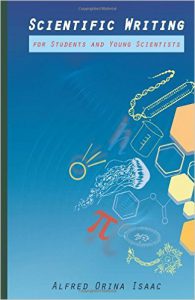The purpose of scientific writing is not the mere presentation of information and research results, but rather its actual communication. It is not only about converting the right data into sentences and paragraphs; it matters only when other scientists gain value from your efforts and when the scientific discourse triggers a wave of discussions and subsequent experimentation. To achieve this, we will discuss aspects of scientific writing style and structure – keeping reader expectations in mind.
Methodology
Our courses are geared towards adult learning and use participatory approaches. The trainer encourages participants to add their experience and knowledge to the course content. Topics covered are backed by real examples and relate to the participants’ field of research.
Before the course, participants can submit specific questions and their own presentation examples by email. The course content will be adjusted to the specific needs and requirements of the participants.
Participants are handed out reading material to be discussed during the course as well as afterwards a course summary with their achievements.
Digital Scientific Writing Tools
Overleaf is an online LaTeX and Rich Text collaborative writing and publishing tool that makes the whole process of writing, editing and publishing scientific documents much quicker and easier.
Authorea is another collaborative platform to read, write, and publish research.
Reading Suggestion

Scientific Writing for Students and Young Scientists by
Paperback: 90 pages
Publisher: CreateSpace Independent Publishing Platform
1st edition (July 2, 2015)
Language: English
ISBN-10: 151428961X
ISBN-13: 978-1514289617
- Communication of Science: Out with the old and in with the new!This post was originally published in Swedish at the Vetenskap & Allmänhet website. “VA is an independent Swedish non-profit membership organization that works to promote dialogue and openness between researchers and the public.” This English version was originally published by Olle Bergman on LInkedIn. I harp on about it all the time, so I may as well … Read more
- The ethics of copyright transfer for scientific researchOn his blog Green Tea and Velociraptors our team colleague Jon Tennant questions the ethics of the widely practiced copyright transfer from authors of peer reviewed articles that are based mostly on public funding to commercial publishers. The following is an excerpt from Jon’s original blog post. […] Typically, the process of copyright transfer for research articles … Read more
- Brain research in KenyaThis podcast was originally published at PhD Career Stories. Professor Alfred Orina Isaac is a Pharmaceutical Scientist at Kenya Technical University with a specific interest in Neuroscience. His research is focused on neurotoxicology and neuroprotection mechanisms in the brain. Currently, he is studying the neurotoxicity of Khat in a mouse model and also the neuroprotection capability of … Read more